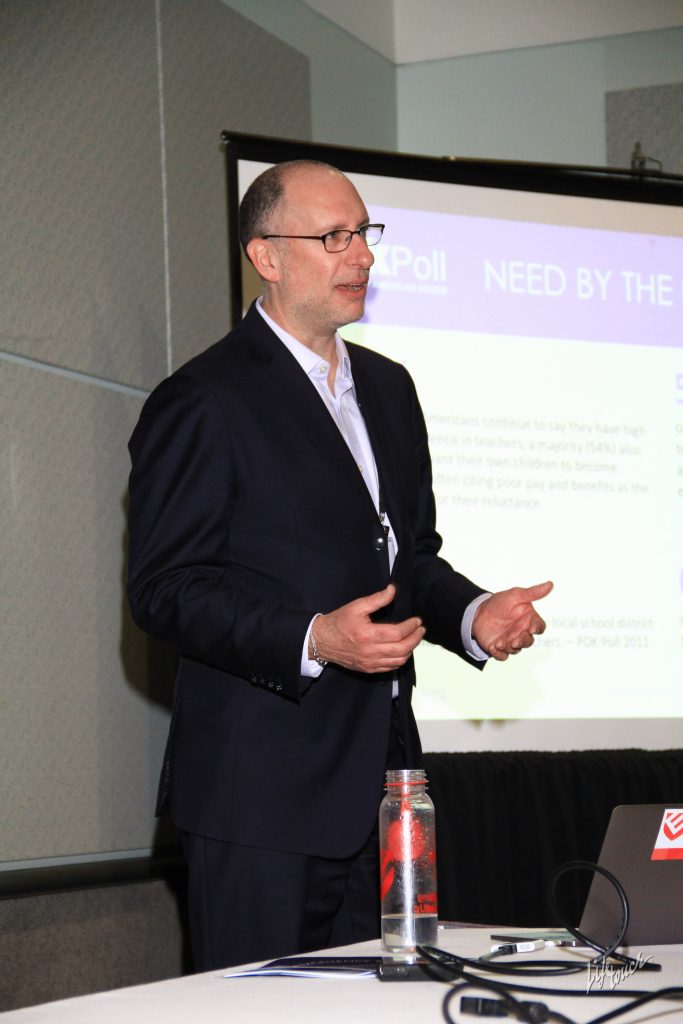Teaching in America no longer is an idealized profession. Factors such as low pay and the lack of professional respect have resulted in a shortage of qualified teachers across the country.
Leading the discussion on this subject Thursday at the AASA national conference were Joshua Starr, CEO of Phi Delta Kappa International, and Marc Bergin, chief of staff for Virginia Beach City Schools in Virginia.
Since 2009, there has been a 35 percent drop in enrollment in teacher education programs nationwide. Among those now in the workforce, 82 percent of K-12 teachers are white despite more than half the student population identifying as children of color. What’s more, Starr said, this year 54 percent of parents said they do not want their children to become teachers. Starr called these statistics alarming.
But he told the conference attendees he has a solution.
Phi Delta Kappa, an international organization that supports current and future educators’ professional growth, has launched a program, Educators Rising, a high school-based initiative promoting education careers among today’s students.
Identifying and grooming talent early on is a critical facet to combating this issue. According to Starr, 60 percent of teachers work no more than 20 miles from where they attended high school.
“For some students, the profession is a matter of social justice and an opportunity to give back to their community,” Starr said.
Consequently, Educators Rising recruits juniors and seniors in high school who are interested in becoming an educator. Students start by learning the theory behind the profession from a trained Educators Rising teacher. Ultimately, students become an intern alongside a tenured teacher, assisting and leading real lessons plans.
As the students develop their teaching skills, they are awarded “micro-credentials” to measure their professional growth. The topics include anti-bias instruction, classroom culture, collaboration, formative assessment and learner engagement. Each micro-credential award requires approximately 5-15 hours of work before an expert educator can review it.
After high school graduation, students are encouraged to continue with PDK programs offered at the college and career level.
Nonetheless, the way the program is implemented and operated is unique to each state. The process of establishing the program in a school district isn’t always the same nor is it easy, Starr admitted. For professional educators to implement the program, they must affiliated with state or district education officials and come up with approximately $10,000 per school to fund the program. More can be found on the program website.
Despite many obstacles, some schools have found the program to be invaluable.
The Virginia Beach City Public Schools district has successfully implemented Educators Rising as a dual enrollment program with Tidewater Community College. The program is funded through the Project Pathfinders Scholarship, a state-funded school resource. High school juniors and seniors who are a part of the program take a single class at the local community college to meet the program requirements free of charge.
Under the name Virginia Teacher for Tomorrow, the program offers high school students contractual agreements guaranteeing a teaching job after college graduation and the completion of the PDK program.
Thus far the Virginia program has offered more than 200 early contracts, and 37 of these students have returned to their school districts as teachers.
(Christian Balderas is a senior at UCLA majoring in communication and an intern with AASA’s Conference Daily Online.)

